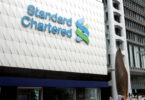Yesterday GlobalTrade Corporation (GTC) revealed it is developing a Trade Finance Exchange (TFX) solution in conjunction with three large enterprises and three major banks, Credit Agricole CIB, HSBC and Standard Chartered. The concept is that global corporates can request quotes for their trade financing needs from multiple banks. The unique selling point is that Global Trade has an existing solution used by large corporates to manage their trade finance so that it can offer tight integration.
The project does not use blockchain but could challenge some of the blockchain trade finance initiatives. For example, there are two Letter of Credit blockchain initiatives. Komgo focuses on commodities, and there’s a Letter fo Credit blockchain consortium formerly called Voltron. Marco Polo is initially more focused on open account trade finance and supply chain but provides the ability to choose a bank from within the ERP system.
Jacob Katsman, Chairman of GlobalTrade, said that clients “wanted request for proposal (RFP) functionality to be integrated with our trade finance management platform that they are using daily for processing guarantees and export documentary credit business.”
He noted that the idea of a marketplace is not new and they exist. He continued: “The problem for corporates using these marketplaces is that they are stand alone and are not integrated with a trade finance management system. This is where the GTC solution will be different.”
Global Trade is working with three corporates – Baker Hughes, Lindner Group and Siemens AG – to ensure it meets their needs.
Siemens outlined its interest. “At its core, of course, an RFQ platform must be driven by corporations with a large volume of transactions and should contribute to internal and external process optimizations, as well as provide a system-integrated audit trail,” said Gerhard Heubeck, Head of Trade Finance Advisory at Siemens AG. “But on top of that, it needs to offer value-added services also to financial institutions that would encourage their cooperation.”
Baker Hughes added its perspective. “It will help the banks to understand upfront what corporates need, provide quick assistance where they are able to help, or just pass on the business in an area or country where the bank cannot support,” said Gessica Scida from Baker Hughes
Meanwhile, the banks are keen to participate as well. Notably, when Standard Chartered recently made an announcement which listed its blockchain activities, it omitted Marco Polo where it has been a member from the early days. However, it mentioned its involvement in the Letter of Credit blockchain project formerly known as Voltron, where HSBC is also a participant.
“We are firm believers in the simplification and digitisation of trade and anticipate that initiatives such as TFX will improve the transparency and efficiency of the trade finance ecosystem,” said Vinay Mendoca, Managing Director at HSBC.
TFX plans to launch in 2020.
While this initiative provides a marketplace to provide choice for corporates, from the banks perspective, there are also secondary marketplaces where they can trade assets. Nine months ago, “Trade Assets” launched a blockchain-based initiative in Dubai, which initially started with several Bangladeshi banks. Tradeteq is also targeting this sector though it doesn’t leverage blockchain. And the most established is Tin Hill’s CCRM platform.







